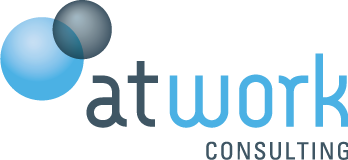This article was generated in 15 minutes as our first experiment using the assistance of AI.
In the ever-evolving landscape of the job market, 2024 is set to bring about significant changes, and leading company directors are sounding the alarm on a potential shake-out. From wage pressures to the impacts of regulatory changes, the directors on the boards of major companies across diverse sectors are foreseeing a challenging year ahead.
Economic Soft Landing but Hiring Freezes
While many anticipate a soft landing for the economy as rate pressures ease, directors caution that growth and investment will remain constrained. The focus is shifting towards cost-saving measures, with hiring freezes and job cuts taking center stage. Lendlease chairman Michael Ullmer emphasizes the pressure on reducing numbers, citing a shift towards cost efficiency, increased use of technology, and AI.
Packaging giant Amcor’s recent announcement of 2000 job cuts and plant closures underscores the trend, following similar moves by big players like banks, Telstra, Australia Post, and Star Entertainment in the previous year.
Wage Pressures and Skill Shortages
The key to the slowdown, according to Ullmer, lies in wage pressures, with household demand stalling and caution prevailing in capital investment. Despite an easing in employment levels, finding skilled workers in sectors like construction, healthcare, energy, and technology remains a challenge.
Seek chairman Graham Goldsmith notes that while advertised salaries have seen steady growth, job ads have decreased by 17.5% year-on-year. The Reserve Bank of Australia’s outlook expects inflation to fall to 3.3% by June, further complicating the economic landscape.
SBS chairman George Savvides anticipates a hiring freeze as the initial phase of a broader shake-out, with intentional cuts to follow. Skill shortages persist, particularly in construction, healthcare, and aged care, creating turbulence in the job market.
Susan Forrester, Chairman of Jumbo Interactive, highlights the leveling off of salary demands in the tech sector. At the same time, wage pressures continue in specialist areas – for example, the introduction of the federal government’s mandatory climate reporting regime has seen a surge in wage expectations, especially for sustainability experts.
The Hybrid Work Revolution and Return-to-Office Mandates: A Tug of War
In parallel, the dynamics of office work are undergoing an ongoing transformation. As companies grapple with economic uncertainties, another revolution continues to unfold — the hybrid work model. A recent study by the University of Pittsburgh reveals that enforcing return-to-office mandates does not significantly improve firm performance in the short term. Instead, it leads to lower job satisfaction. The study suggests that a more flexible approach, linking hybrid work policies to job tenure and experience, will be more effective in fostering employee loyalty and productivity. The recent trend in return-to-workplace mandates flies in the face of research. A productive blended workforce with optimal and realistic systems for hybrid work is the solution. Culture must shift to support this.
While some companies are upgrading their offices to entice workers back, others, like Atlassian, embrace a fully remote work model. The data indicates that the push for a complete return to pre-pandemic office norms is starting to stall, with most white-collar workers in particular aiming towards a routine of coming into the office no more than three days a week.
Conclusion: Navigating the Uncharted Waters
As we navigate the uncharted waters of 2024, the job market stands at a crossroads. Directors foresee challenges, from economic uncertainties to the complexities of hybrid work models. Skill shortages persist, and companies are adopting intentional strategies to resize and adapt to the evolving landscape. Whether in the boardroom or the home office, flexibility and adaptability are becoming the watchwords for success in the year ahead.

